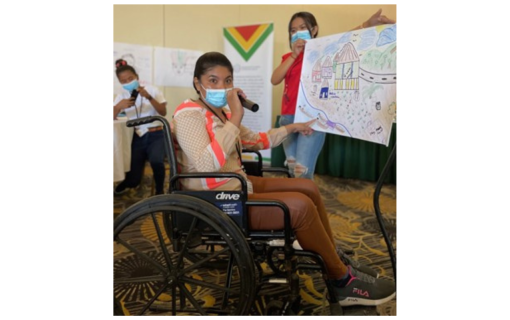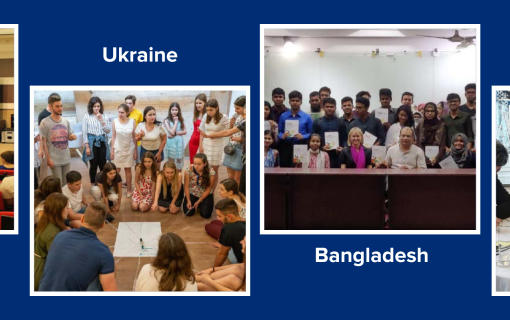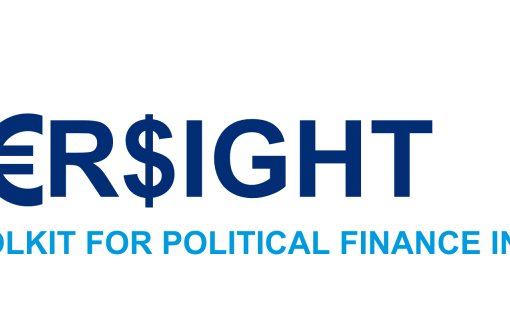Armenia: Technical Assistance, November 10, 1996 Municipal Elections
Executive Summary
Project Background. The current IFES Electoral Reform Project was initiated by a February 1996 request from the Chairman of the National Assembly, Babken Ararktsyan, to the US Ambassador to the Republic of Armenia, Peter Tomsen. The purpose of the request was to seek assistance in the preparation of the election laws governing the presidential and municipal elections scheduled for Fall 1996. The project was a follow-up to the 1995 IFES Technical Assistance Mission to Armenia in connection with the National Assembly elections and Constitutional Referendum. The 1995 election and referendum were marred by charges of fraud and intimidation, and numerous questions were raised by both international and domestic monitoring groups regarding the fairness and transparency of the process.
IFES placed Christopher Shields on the ground in Yerevan, Armenia, as Project Manager in late February 1996. He was joined by Election Administration Specialist Ann Gardner in March 1996. Election Law Consultant Mark Braden of Baker & Hostetler of Washington, DC and an outside counsel to the U.S. House of Representatives for election law, provided additional expertise to the Mission.
The IFES/ Armenia Mission. The Mission's charge for 1996 was to serve as a technical information resource, to provide assistance to the National Assembly on election law development, to direct technical assistance to the Central Electoral Commission (CEC) in the form of specialized election administration assistance, to conduct high-impact voter education outreach, and to strengthen the NGO community. With these goals in mind, IFES:
• developed and distributed a training manual for Precinct Electoral Commission members;
• conducted instruction seminars for election officials in all 11 regions of Armenia;
• conducted voter education through the production and distribution of over 40,000 informational posters and fliers; and
• produced a series of "Town Hall" forums which brought representatives of the CEC to the Armenian public to explain the Law on Elections for President for the Republic of Armenia on local television, reaching over 1 million people in ten of the eleven regions.
Currently, the Mission is working on the development of a universal electoral code for all future elections in Armenia, as well as a series of other electoral reform projects, including continued voter education and information programming focused on increased citizen participation in building and strengthening democratic institutions.
Review and Assessment. In the aftermath of the 22 September presidential election and the civil . unrest which followed, IFES conducted a full review of its programming options and elected to remain active in the effort to improve the electoral system and its administration by continuing its assistance to the Central Electoral Commission.
A comprehensive list of areas of critical concern, based on eyewitness observations of the IFES Mission during the 22 September election, was prepared and is included in Section VII. Recommendations. These recommendations are based on the overall events during the elections, provisions of the law in place at the time of the elections, and observations at the polling places, and address the following areas:
• Electoral Commission Accountability
• Training Curriculum for Electoral Commission Members
• Removal of Electoral Commission Members
• Future Municipal Governance Structures
• Pre-Election Campaign-Media
• Preparation of Voter Lists
• Ballot Accountability
• Procedure for Invalidating Ballots
• Unauthorized Persons in Polling Places
• Announcement of Final Results
• Recount Provisions
• Appeals Process
• Domestic Observers
• Election Law Violators
• Political Party Law
• Commonality Issues
• Transparency
A continuation of the IFES Election Administration training was determined necessary, although, as with the presidential election, promises by the Yerevan Regional Electoral Commission (REC) to facilitate participation by precinct commission chairmen were never fulfilled.
Electoral Process . First stage municipal elections were conducted on 10 November, with second stage elections scheduled for 24 November. Not all communities were able to complete the election process by 24 November due to lack of candidates, court challenges, or, in one community (in Yerevan), because election officials refused to hold the election.
IFES Access. The IFES Mission was granted open access to all electoral commissions at all levels. As noted above, the CEC granted the Mission access to all precincts for the purpose of conducting technical observation. The results of the observations were compiled into a memorandum presented to CEC chairman Khachatour Bezirjian.
Election Day. Permission was sought from and granted by the CEC to allow the IFES Mission to conduct technical observation of the 10 November first-stage Municipal Elections. The observations were conducted in 21 precincts within the Yerevan and Aragotsotn regions.









